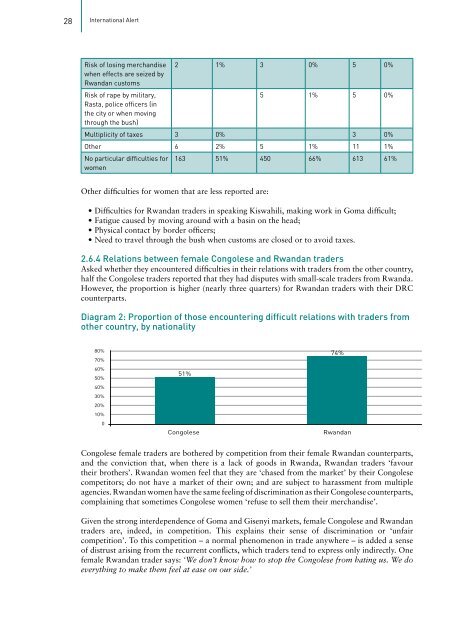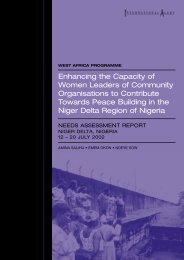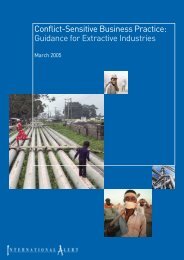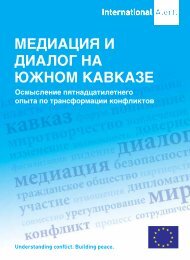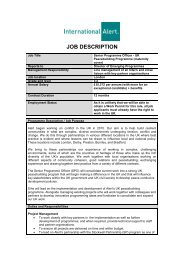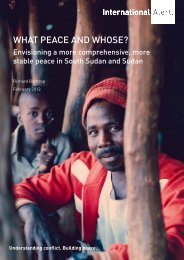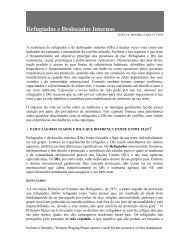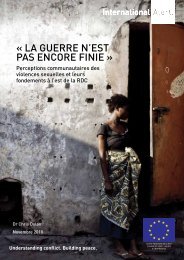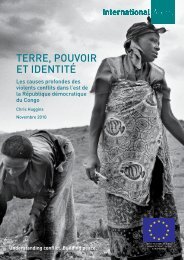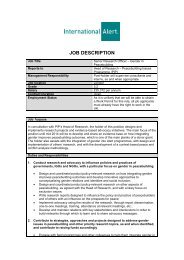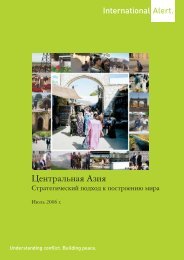The crossing English Version - International Alert
The crossing English Version - International Alert
The crossing English Version - International Alert
- No tags were found...
You also want an ePaper? Increase the reach of your titles
YUMPU automatically turns print PDFs into web optimized ePapers that Google loves.
28 <strong>International</strong> <strong>Alert</strong>Risk of losing merchandisewhen effects are seized byRwandan customsRisk of rape by military,Rasta, police officers (inthe city or when movingthrough the bush)2 1% 3 0% 5 0%5 1% 5 0%Multiplicity of taxes 3 0% 3 0%Other 6 2% 5 1% 11 1%No particular difficulties forwomen163 51% 450 66% 613 61%Other difficulties for women that are less reported are:• Difficulties for Rwandan traders in speaking Kiswahili, making work in Goma difficult;• Fatigue caused by moving around with a basin on the head;• Physical contact by border officers;• Need to travel through the bush when customs are closed or to avoid taxes.2.6.4 Relations between female Congolese and Rwandan tradersAsked whether they encountered difficulties in their relations with traders from the other country,half the Congolese traders reported that they had disputes with small-scale traders from Rwanda.However, the proportion is higher (nearly three quarters) for Rwandan traders with their DRCcounterparts.Diagram 2: Proportion of those encountering difficult relations with traders fromother country, by nationality80%70%60%50%40%30%20%10%051%Congolese74%RwandanCongolese female traders are bothered by competition from their female Rwandan counterparts,and the conviction that, when there is a lack of goods in Rwanda, Rwandan traders ‘favourtheir brothers’. Rwandan women feel that they are ‘chased from the market’ by their Congolesecompetitors; do not have a market of their own; and are subject to harassment from multipleagencies. Rwandan women have the same feeling of discrimination as their Congolese counterparts,complaining that sometimes Congolese women ‘refuse to sell them their merchandise’.Given the strong interdependence of Goma and Gisenyi markets, female Congolese and Rwandantraders are, indeed, in competition. This explains their sense of discrimination or ‘unfaircompetition’. To this competition – a normal phenomenon in trade anywhere – is added a senseof distrust arising from the recurrent conflicts, which traders tend to express only indirectly. Onefemale Rwandan trader says: ‘We don’t know how to stop the Congolese from hating us. We doeverything to make them feel at ease on our side.’


